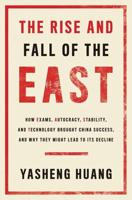Publisher's Synopsis
In this book, street-level bureaucracy scholars from South Asia, sub-Saharan Africa, the Middle East, and Latin America analyse the conditions that shape frontline work and citizens´ everyday experience of the state.
Institutional factors such as political clientelism, resource scarcity, social inequality, job insecurity, and systemic corruption affect the way street-level bureaucrats enforce rules and implement policies. Inadvertently, they end up implementing inequities in citizens' access to rights and services - despite efforts to repair organisational deficiencies and broker relations between vulnerable citizens and a distant state. This book illuminates these realities and challenges and provides unique insights into critical themes such as resource scarcities, bureaucratic corruption, control practices, and the complexities of dealing with vulnerable population groups.










